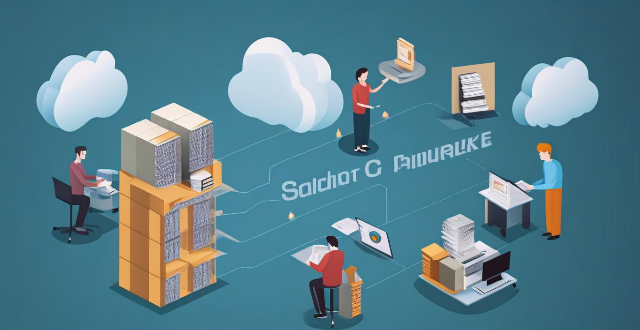The text compares and contrasts the features, advantages, and disadvantages of cloud storage and local computer memory. Cloud storage offers accessibility from anywhere, scalability, disaster recovery options, and collaboration capabilities, but it depends on internet connectivity, raises security concerns, and can incur costs. Local computer memory, such as hard drives or SSDs, does not require an internet connection, provides physical control over data access, and is generally more cost-effective for one-time purchases. However, it limits accessibility to a single device, poses risks of physical damage, and faces scalability challenges that necessitate buying additional hardware. The choice between these two storage solutions should be based on individual needs regarding accessibility, scalability, security, and budget.

Cloud Storage vs. Local Computer Memory
Cloud storage and local computer memory are two different types of data storage solutions with their own unique advantages and disadvantages. Here's a detailed comparison between the two:
Cloud Storage
- Definition: Cloud storage is a model of networked online storage where data is stored on multiple virtual servers generally hosted by third parties.
- Advantages:
- Accessibility: Data stored in the cloud can be accessed from anywhere with an internet connection.
- Scalability: Cloud storage providers offer flexible plans that scale up or down based on your needs.
- Disaster Recovery: Cloud providers often have backup and recovery options, reducing the risk of data loss.
- Collaboration: Multiple users can access and work on the same files simultaneously.
- Disadvantages:
- Dependency on Internet: Without a stable internet connection, you cannot access your data.
- Security Concerns: Data is stored on remote servers, which might be vulnerable to cyber threats.
- Costs: While there are free options available, larger storage requirements often come with a cost.
Local Computer Memory (Hard Drive/SSD)
- Definition: Local computer memory refers to the internal storage devices like hard drives or solid-state drives (SSDs) within a computer.
- Advantages:
- No Internet Required: You can access your data anytime without needing an internet connection.
- Control: You have physical control over your storage device and who has access to it.
- Cost-Effective: Once you purchase a storage device, there are no ongoing costs unless you need to upgrade.
- Disadvantages:
- Limited Accessibility: Data can only be accessed from the device it's stored on.
- Physical Damage Risk: Local storage devices can be damaged, leading to potential data loss.
- Scalability Issues: Increasing storage capacity requires purchasing additional hardware.
Conclusion
When choosing between cloud storage and local computer memory, consider factors such as accessibility, scalability, security, and cost. Depending on your specific needs and preferences, one solution might be more suitable for you than the other. For example, if you frequently work on documents collaboratively and need access from multiple devices, cloud storage could be advantageous. On the other hand, if you prefer not to rely on the internet and want complete control over your data, local computer memory might be the better choice.